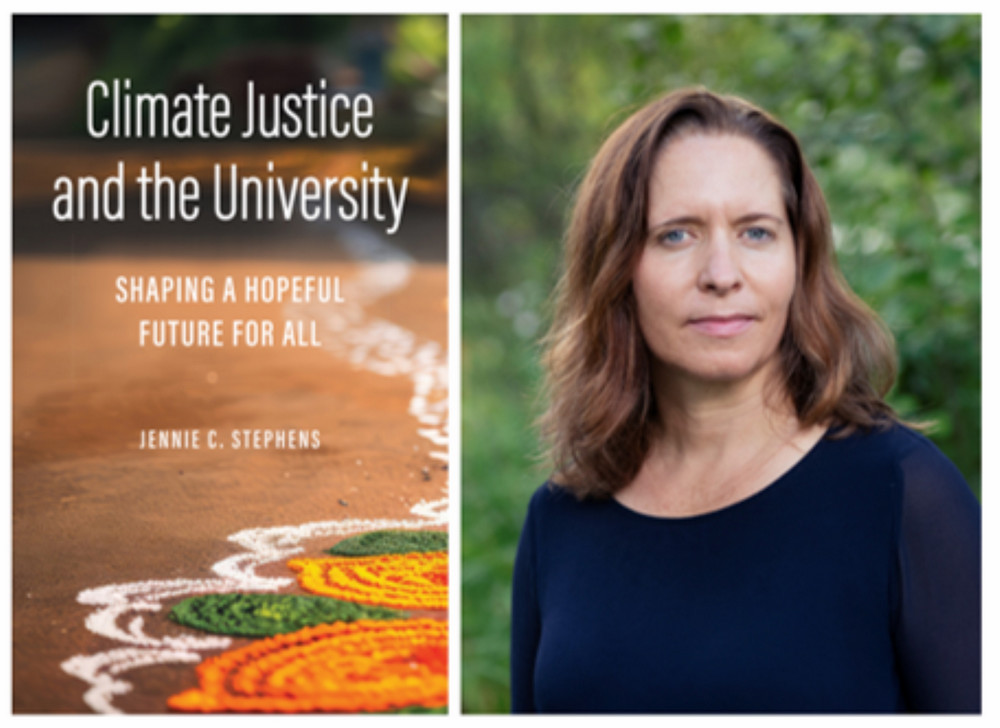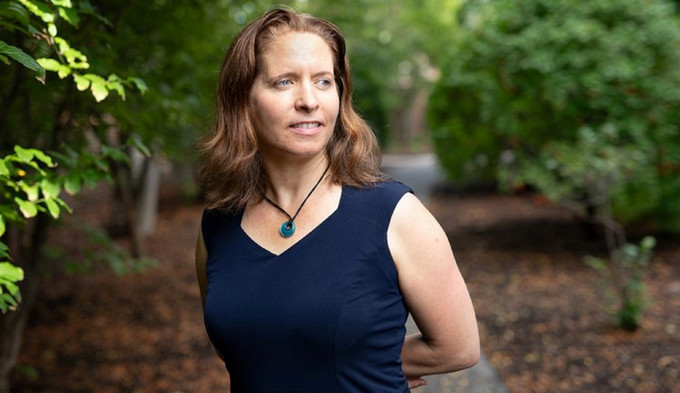International expert, Dr. Jennie Stephens, Professor of Climate Justice at the National University of Ireland Maynooth, will deliver the 2025 Woodrow Lloyd Lecture at the University of Regina. With a career spanning more than 30 years, Stephens’ research focuses on climate justice, energy system transformation, and the role universities can play in creating a more just and sustainable future.
“I’ve been working in universities my whole career focused on climate justice, sustainability science, and energy transitions, and I have become more and more critical and concerned that we aren't doing enough that is transformative,” says Stephens.
Higher education has a critical role to play in societal transformation toward an equitable, decolonised, stable, and healthy future. During this disruptive time, new opportunities for change are emerging and we need to be ready with alternative visions. — Dr. Jennie Stephens, Professor of Climate Justice at the National University of Ireland Maynooth
In addition to her Professorship in Ireland, Stephens is a fellow at the Global Center for Climate Justice, Professor of Sustainability Science and Policy at Northeastern University in Boston, and was a Climate Justice Fellow at Harvard-Radcliffe. The title of her lecture, Climate Justice and the University: Shaping a Hopeful Future For All, is also the title of her latest book. In the book, Stephens asserts that post-secondary institutions should be reimagined and restructured to support the social change required to advance ecological health and human well-being.
“If we think about our universities as critical social infrastructure with an external orientation, there's a lot more that they could be doing to support community engagement and bigger systemic structural change. We should think of them as a community resource or hub and not only as a degree-granting institutions,” says Stephens.

According to Stephens, the kind of transformation needed requires commitment to rebalancing human society within ecological systems with reciprocity and regeneration, and recognizing the need to care for land, water, biodiversity, and human well-being as part of interconnected and healthy ecosystems. Despite increasingly bad news related to climate change and ecological stress, she says we should focus on being prepared for the bigger, societal change that she believes is inevitable.
“Higher education has a critical role to play in societal transformation toward an equitable, decolonised, stable, and healthy future. During this disruptive time, new opportunities for change are emerging and we need to be ready with alternative visions,” says Stephens.
Opportunity to learn
The Faculty of Arts at the U of R hosts the annual Woodrow Lloyd Lecture and speakers are selected by a committee comprised of student, faculty, and community representatives. The committee looks at experts from outside Saskatchewan who can share perspectives and expertise on issues relevant to the province. Dr. Tom McIntosh, a member of the committee and Associate Dean of Arts (Research and Graduate), hopes Stephens can help inform strategic planning and policy at the U of R and other Canadian universities.
“Universities are uniquely positioned to bring expertise rooted in research to public debates, but they are also large institutions that employ hundreds of people and have a significant environmental impact. We should not only be part of informing the debate about future environmental policy, but also actively pursuing environmental policies inside our own institution that move us to a more sustainable future. The planning committee hopes that Dr. Stephens can help us think more deeply from both perspectives,” says McIntosh.
Local carbon reduction focus for community panel
While in Regina, Stephens will also participate in a community panel discussion, Getting to Zero - Checking in on Local Carbon Reduction Efforts. The panel, which takes place the evening before the lecture, will discuss local plans for reducing carbon emissions as a means to contribute to climate justice. Other panelists include Robbi Humble, Manager of Sustainable Energy and Adaptation at the City of Regina, Neil Paskewitz, Associate Vice-President of Facilities Management at the U of R, and Abhay Singh Sachal, Graduate Student at the U of R and Founder of Break The Divide. Jocelyn Crivea, Director of the Sustainability Office at the U of R, will moderate the discussion.
Join the discussion
Students and community members are invited to attend the free 2025 Woodrow Lloyd lecture on Wednesday, March 19th at 7:00 p.m. on the College Avenue Campus. For parking information and ticket reservations, visit the events page.
Registration is also required for the Community Panel Discussion taking place on Tuesday, March 18that 7:00 p.m. at mâmawêyatitân centre, 3355 6th Avenue.
About the Woodrow Lloyd Lecture
The annual lecture is presented in honour of Woodrow Lloyd (1913-72) who served as Saskatchewan’s 8th premier from 1961-1964. Most notably Lloyd completed the introduction of Medicare in the province begun by his predecessor Tommy Douglas by extending hospital insurance to also include medical insurance.
Reserve your free tickets to attend the 2025 Woodrow Lloyd lecture.
About the University of Regina
2024 marked our 50th anniversary as an independent University (although our roots as Regina College date back more than a century!). As we celebrate our past, we work towards a future that is as limitless as the prairie horizon. We support the health and well-being of our 17,200 students and provide them with hands-on learning opportunities to develop career-ready graduates – more than 92,000 alumni enrich communities in Saskatchewan and around the globe. Our research enterprise has grown to 21 research centres and 9 Canada Research Chairs. Our campuses are on Treaties 4 and 6 - the territories of the nêhiyawak, Anihšināpēk, Dakota, Lakota, and Nakoda peoples, and the homeland of the Michif/Métis nation. We seek to grow our relationships with Indigenous communities to build a more inclusive future.
Let’s go far, together.
